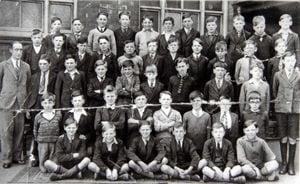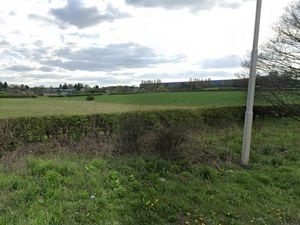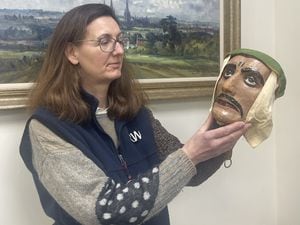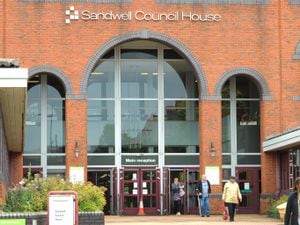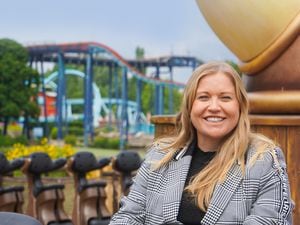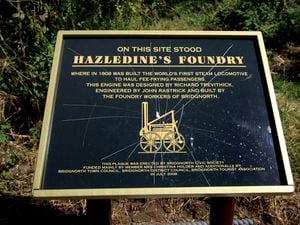World War Two twins oldest in Black Country
They are believed to be the oldest twins in the Black Country, aged 95.
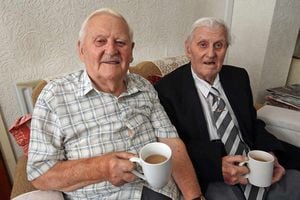
But Robert and Jim Fletcher admit they are lucky to be alive after scraping their way through the Second World War.
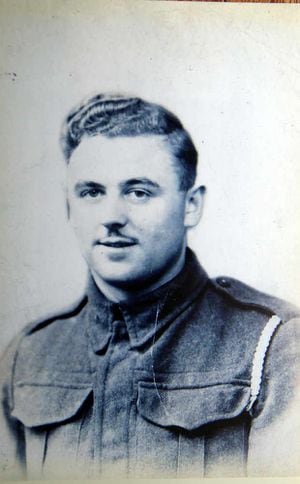
Robert was stabbed with a bayonet while fighting in Italy and was sent back home to recover, but said a flick of his trusty rifle meant the blade went into his arm and not his stomach.
Meanwhile, his twin brother Jim was part of the D-Day landings. He still remembers getting onto the beaches and seeing his Colonel get shot. He was eventually captured by the Germans and spent 11 months in a prisoner of war camp.
But the pair insist they are lucky despite their ordeals during the war, after celebrating their 95th birthday together.
They were born on August 2, 1919 and worked in the building trade before heading off to war, following in the footsteps of their father.
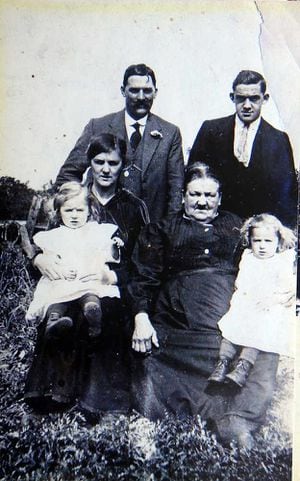
Robert served as a driver with the Royal Army Service Corps and was sent to North Africa in 1942 to drive for the Eighth Army.
He said: "The worst part of my life was in North Africa. I hated it there. We moved on to Italy and I was there for three years.
"It was there that I got bayoneted. A guy came towards me with his bayonet and stabbed as me, but I used my rifle to deflect it and it stuck in my arm. I've still got the scar now.
"I was in hospital for more than two months and the nurses looked after me well. They told me I was getting better but I may have to go home to recover.
"Then in 1944, they told me that there was this thing called penicillin that I could take, so I had that, got better and I stayed in Italy.
"I was posted to Messina and after that I was posted to Frankfurt and then I came home. I served for seven years in the army."
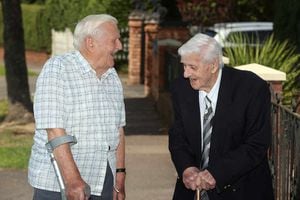
Jim, who lives in Coseley, joined the Royal Warwickshire Regiment and was part of the British Expeditionary Force that was evacuated from Dunkirk in 1940. He married his wife Gladys at Christ Church in Coseley in 1941, but after going back off to war in 1943, he didn't see her again until 1946.
He said: "I landed on Sword beach during D-Day, and my first memory was that the Colonel was the first person I saw to be killed.
"There was a man on the belfry, a sniper, and he shot him, so we picked up a cannon and blew the top off the belfry and killed him."
He was captured on D-Day and on June 7 was taken to a prisoner-of-war camp called Stalag 4B, in Brandenburg, before being moved to Stalag 4C, which is in what is now the Czech Republic.
He was eventually transferred to Stalag 12D in Dierdorf, where he stayed until he was freed at the end of the war.
Jim took camp life on the chin, however.
He said: "It wasn't that bad. I worked in a sugar factory but there was a Austrian officer and a German officer there who were quite nice.
"I didn't really do any of the work I was there mainly with the officers.
"The one day the German officer showed me a picture and I said I liked the look of one of the young women on there.
"The officer said I must have good taste because I'd pointed out his sister.
"There were some times that weren't very nice though. When I was taken prisoner I had can full of petrol that they trickled down my back and that burned my left side.
"In the end I wandered over to some girls and got them to cut the skin off that had the petrol on and they helped me so I was okay then."
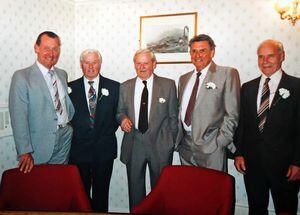
When they came back from the war, the brothers continued to ply their trade as builders. In the 1950s they set up their own company and both men continued to work into their 70s.
Robert said the pair were lucky to return home from the war, and said they kept themselves fit and active by working hard.
He said: "We've always kept ourselves fit and healthy since we got back, but we were the lucky ones.
"I've always worked hard and kept myself busy in the garden. I still do all my housework myself."
Robert married his first wife Edith in 1940 and had three children, Pat who died earlier this year, Robert, 66 and Paul 58. He also has eight grandchildren, 15 great-grandchildren and five great-great-grandchildren. He married his second wife Eileen in 1982.
Jim has one son, also called Jim, two grandchildren and four great-grandchildren.
